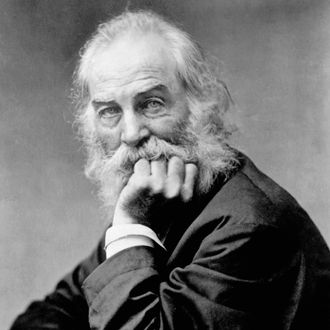
When you hear someone’s name, it tends to trigger all sorts of biases that color how you perceive the subsequent information we learn about them — biases informed by stereotypes about gender and race. As I explained in my piece last year arguing against the use of cover letters and résumés in the hiring process, there’s a great deal of evidence supporting this idea, and it’s a very real factor in determining who gets access to which opportunities. To take the classic example, all things being equal, job applications with “white”-sounding names tend to garner more interview invites than those with “black”-sounding ones, even when the résumés under the names are identical.
Sherman Alexie, guest editor of the 2015 Best American Poetry, has a wonderful post about this phenomenon at the BAP blog. It’s pegged to a mini-scandal about one poem in particular.
Here’s the short version of what happened: Alexie, who was specifically on the lookout for work by under-the-radar poets as he examined thousands of candidates for BAP, got hold of a poem he really liked by an author named Yi-Fen Chou and selected it for the series. Right after he did so, the author reached out — actually, he wasn’t Chinese-American, as Alexie thought, but rather a white guy with the white-guy-sounding name Michael Derrick Hudson. Hudson chose the Chinese pseudonym, Alexie explains, “as a means of subverting what he believes to be a politically correct poetry business.”
Alexie wasn’t happy to find out about this. But when he looked at the actual poem itself, he realized that there wasn’t anything in there directly pertaining to being Chinese. “In fact, by referencing Adam and Eve, Poseidon, the Roman Coliseum, and Jesus, I’d argue that the poem is inherently obsessed with European culture,” he writes. “When I first read it, I’d briefly wondered about the life story of a Chinese American poet who would be compelled to write a poem with such overt and affectionate European classical and Christian imagery, and I marveled at how interesting many of us are in our cross-cultural lives, and then I tossed the poem on the ‘maybe’ pile that eventually became a ‘yes’ pile.”
Since all of this has come out, Alexie, himself of Native American descent, has gotten some heat from other poets to renege on his selection in light of the new information about the poem’s true authorship. But even though he was “so angry that I stormed and cursed around the room,” he decided he wasn’t going to.
Alexie is very transparent with his reasoning:
Trust me, I would much rather be getting praised by you poets than receiving the vilification I am getting now.
But I had to keep that pseudonymous poem in the anthology because it would have been dishonest to do otherwise.
If I’d pulled the poem then I would have been denying that I gave the poem special attention because of the poet’s Chinese pseudonym.
If I’d pulled the poem then I would have been denying that I was consciously and deliberately seeking to address past racial, cultural, social, and aesthetic injustices in the poetry world.
Elsewhere in the post, Alexie highlights some of the other steps he took to protect himself from reading the poems in a biased manner:
Rule #1: I will not choose any poem written by a close friend.
Rule #2: I will be extremely wary of choosing any poem written by somebody I know, even if I have only met that person once twenty years ago and haven’t talked to that person since.
Rule #3: I will also be hyper-judgmental of any poem written by a poet I already admire. I will not be a fan boy.
Rule #4: I will not choose any poem based on a poet’s career. Each poem will stand or fall on its own merits. There will be no Honorary Oscars.
It can feel threatening to acknowledge that we are all susceptible to bias. The reality is that it’s simply a part of being human — if we see the name of a writer we know and like under the title of a given work, unless we’re very careful, we’re likely to overestimate the quality of the writing. The same goes for the aforementioned influence of race and gender.
Alexie, in both explaining his guidelines and acknowledging the fact that he read Hudson’s poem in a different, more open way because he thought the author was Chinese-American, is being refreshingly honest about all of this stuff. It’s obviously an unusual case because most of the research on names and bias focuses on members of minority groups getting discriminated against as a result of their names, but the simple idea that, yes, names trigger bias is an important one to wrestle with rather than try to explain away.




